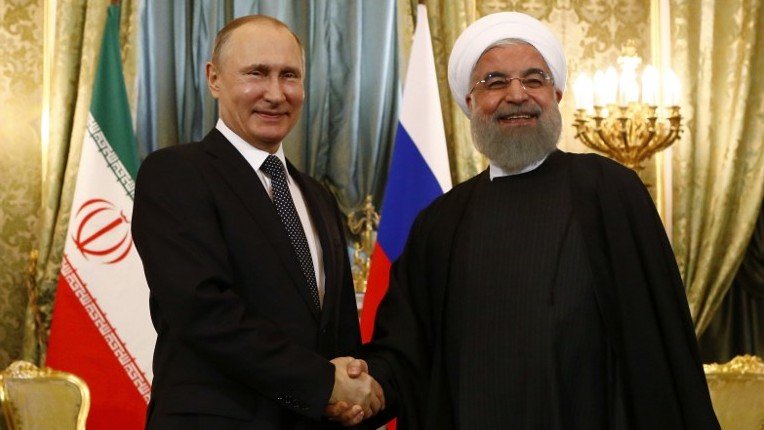Rouhani and Putin discuss JCPOA, Syria on the phone

TEHRAN – President Hassan Rouhani and his Russian counterpart Vladimir Putin have held a telephone conversation, during which they confirmed commitment to the 2015 nuclear deal, the Kremlin press service said in a statement.
“The parties confirmed commitment to the consistent implementation of the Joint Comprehensive Plan of Action (JCPOA) for Iran’s nuclear program, which is important for maintaining global peace and stability,” the statement read.
The two presidents also discussed the Yemen crisis and exchanged views on ways to resolve the Palestinian issue.
“There also was a discussion of pressing issues concerning bilateral cooperation in various fields,” the Kremlin press service said, adding that “a decision has been made to maintain contacts on various levels.”
Putin and Rouhani also pointed to effective cooperation between Russia, Iran and Turkey on the Astana platform which aims to resolve the Syrian crisis through dialogue.
“The parties pointed to effective cooperation between Russia, Iran and Turkey on the Astana platform,” the statement said. “They expressed readiness to continue coordinating their steps to promote the platform and put new issues on the agenda.”
The two presidents exchanged views on the outcome of the Syrian National Dialogue Congress, held in the Russian Black Sea resort of Sochi in late January.
“It was stressed that the decisions made there were aimed at providing a significant impetus to the political settlement process in Syria based on the United Nations Security Council Resolution 2254, as well as at improving the situation in the region,” the statement said.
On December 30, 2016, the Syrian government and armed opposition made an agreement declaring a ceasefire across the country, which had been brokered by Russia and Turkey.
In addition to the UN-sponsored talks in Geneva, Russia, Turkey and Iran organized a series of intra-Syrian consultations in Astana, Kazakhstan’s capital, seeking to ensure the ceasefire.
At an Astana meeting in May 2017, Russia, Iran and Turkey signed a memorandum on setting up de-escalation zones in Syria, which entered into force on May 6, 2017.
Meanwhile, Turkish President Recep Tayyip Erdogan criticized the United States for interfering in Syria, which he said is a threat against regional countries.
The U.S. is working against the interests of Turkey, Iran and maybe Russia in northern Syria, where it is sending in military supplies to an area controlled by Kurdish-dominated forces, Erdogan said on Tuesday, Reuters reported.
“If the United States says they are sending 5,000 trucks and 2,000 cargo planes of weapons for the fight against Daesh, we don’t believe this,” Erdogan told members of his ruling AK Party in parliament.
“It means you have calculations against Turkey and Iran, and maybe Russia,” he said, repeating a call for U.S. troops to withdraw from the Syrian town of Manbij.
MH/PA
